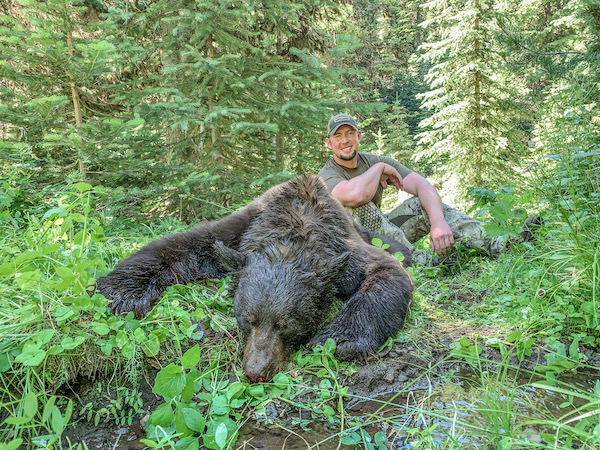Washington wildlife managers are recommending that the Fish and Wildlife Commission deny a petition seeking to reverse bear and cougar rules approved in 2019 and 2020 – and suggest that much more is actually at stake given what the petitioners really want.

“Although they speak about reversing the decisions made, the rule language they propose goes far beyond reversing the changes,” states a summary sheet prepared by WDFW’s Anis Aoude ahead of the citizen panel’s December 14-16 meetings, when the petition is up for a decision.
Filed in late October by nearly the same slate that this week asked Governor Inslee to direct WDFW to begin tightly shackling rulemaking around wolf-livestock conflicts after the commission this fall turned them down for a second time, the groups’ purport to ultimately want the agency to “immediately close cougar hunting upon reaching area-specific quotas and institute a statewide ‘bag limit’ of one bear per hunter.”
However, the statewide bear limit was actually two bears a year prior to that rule change, with one allowed on either side of the Cascades or two west of the crest. The commission’s nearly unanimous 2019 vote allowed hunters to take a second black bear in Eastern Washington, among other tweaks to the fall bruin season that were made permanent in 2021.
As for cougars, the petitioners want to chop April out of the late season and include depredation removals in the hunting quotas, as well as shorten the hide sealing deadline timeline.
“It’s more restrictive than what the rule was,” Aoude says.
Back at the 35,000-foot level, Aoude points out in his summary sheet that WDFW is already considering elements of the petition as agency staff work on the structure of future bear and cougar seasons based on a “scientific review of the available science” and afterwards would initiate rulemaking to “incorporate this new analysis and information” into hunting opportunities. As such, they’re not recommending any changes be made to those seasons, and if any such as in the petition were, it would further delay completion of the Game Management Plan because the same people would be working on both projects.
He also disputes the petitioners’ claim those two rule changes “have already significantly harmed Washington’s bears and cougars,” as stated in their request.
“The department analyzes game species population status and trends on an annual basis and this information does not indicate that waiting for one or two years for a new framework to revise these rules would harm the valuable bear and cougar resource in Washington nor will it diminish their role in the ecosystem,” Aoude writes.
Laying out the coming full presentation to the commission, he says new harvest data since the rule changes will be presented, as well analysis of harvest impacts.
The bear and cougar petition was filed by Washington Wildlife First, Center for Biological Diversity, the Humane Society of the United States, Mountain Lion Foundation, WildFutures, Predator Defense, Coexisting with Cougars in Klickitat County and Kettle Range Conservation Group.
This will be an interesting one to watch, given prior interest this fall from a few commissioners to revisit bear and cougar hunting. Ultimately, the commission could tailor beginning rulemaking however it might wish.




